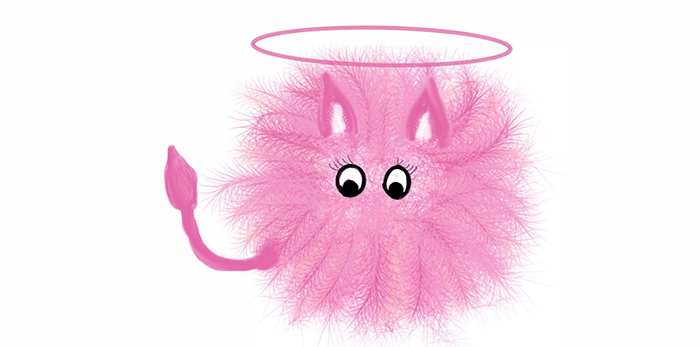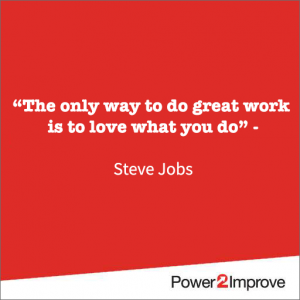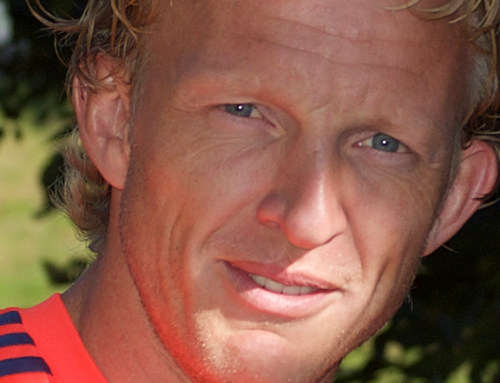When the year is coming to an end, I tend to get a bit restless. For not only in my personal life, also during study and while at work, the December madness kicks in. Which tasks do I want to finish before New Year arrives and how do I tackle those? While thinking about this, tension in my head increases. I preferably want to finish all these tasks in the best possible way. And that is when my inner critic shows up with a pressing question: ‘How can I become and be even better at what I do next year?’
These questions of course do not only pop into my head. Especially in the last month of the year, they also come around in real life conversations. Obviously, I’m talking about the common known end-of-year or feedback sessions, in which employer and employee evaluate things like functioning, growth and development. For a lot of people, these kind of sessions add an extra bit of pressure to the December-stress. Managers at a lot of companies and organizations tend to look mainly and routinely at the mistakes you made as an employee and how you can prevent this from happening in the next year. And: most preferably, as good and quick as possible.

Focussing on negative topics like correcting and preventing mistakes, will echo for a long time, which doesn’t affect your mood and work spirit in a positive way.
I can tell you from my personal experience, this doesn’t feel that positive and stimulating. You might have felt dejected by something similar too. A study done by Andrew Minder, Theresa Glomb and Charles Hulin, three American organisational psychologists, validates this. They found that the relationship between negative events and mood appears to be five times as strong as the relationship between positive events and mood. Even though these positive things occur three to five times more often than negative ones. So, focussing on negative topics during your end-of-year conversation, like improving and preventing mistakes, will echo for a long time, which doesn’t affect your mood and work spirit in a positive way. Does this all sound familiar to you?
The key to success
In many different work and study related manners I got myself into in the past few years, I experienced a lot of different ways of receiving feedback. Sometimes, I almost got no comments on my functioning, which in my head turned into insecurity and gave rise to even more questions. Other times, the given feedback was mainly linked to things that didn’t go that great yet, but these times, at least it was wrapped in an appreciative and positive manner. Currently, I’m mostly receiving ‘feedback’ that doesn’t really feel like feedback, but more like a great way of communicating together. Of course, always with the shared goal to both get even better at the things we do. And I feel that helps.
What I learned from all these different feedback styles? Feedback that is given in a constructive and positive way motivates me most to grow and to keep on using my talents as effective as possible. And most of the time, it’s all in the details. Like transforming a simple ‘Well done!’ into a more specific: ‘I think you performed very quickly and decisively on this task, leading to a great result.’ This way, I specifically know what I did great and how to do this again in the future. So, how do you manage your end-of-year interview to become a wicked awesome conversation, and start your Christmas break with a motivated and positive feeling? I will tell you more about it below!

1. Strengthen yourself
Before you start ‘the talk’ with your supervisor, begin with a (positive) rating of yourself. What are your qualities and strengths? How do you use them? After all, you know yourself best. And don’t forget to silence your inner critic (I know: it’s tough, but it’s possible! When this is really hard for you to do, coaching on the basis of Co-creative Inner Dialogue can help you for sure.)
One thing that actually helped me to become aware of my qualities, is taking the quick and easy Strength Creators test. The Top 5 that flows out of it covers the qualities that not only make me strong, but also up to four times as successful. At work, during my studies and even in personal life. Researcher and expert in the field of Positive Psychology, Michelle McQuaid, calls her approach, based on this, the ‘Strengths Revolution’. A transition that your manager can also help make reality during your interview. Almost three-quarters of all managers that can name their employees’ strengths (71 percent), tend to have more energetic and engaged staff, McQuaid concludes.
Research by the Corporate Leadership Council states that when managers focus on their employees’ weaknesses , their performance drops with 27 percent. On the other hand, focussing on employees strengths increases their performances with 26 percent. Therefore, it doesn’t make sense if, in my case, I have to work on making and keeping tight schedules. I’m simply not a star in doing that and it sure doesn’t make me happy. Instead, it works for me to focus on what I’m capable of doing and what really makes me enjoy working: writing creative content, enthuse myself and others and most of all having fun. And, not to forget: for things like keeping up with schedules, ask for help from a colleague who does enjoy doing these kind of tasks. This way, me and also the whole working staff, performs best.
2. Double check your feedback
Thinking about your qualities creates a constructive basis for the feedback you will receive in your end-of-year interview. For, as you thought about your strengths, talents and skills yourself, you can easily check if this matches what your supervisor says about you.
Does it match? Communicate together about how you can use your qualities even better in the future. Are you and your supervisor not quite thinking alike about your abilities? Find out what possibly causes these misconceptions and how you can to solve these in a positive manner.
3. Avoid one-way traffic
A lot of employees, including me, already made this mistake once or more. Just sitting down, listening and nodding ‘yes’ on everything your manager says about you. This often isn’t quite helpful. Namely, this way you don’t really show what you would love to hear or learn. Your supervisor can, on his or her part, not really provide with (better) constructive and useful feedback.
Therefore, an active attitude towards receiving and handling your feedback is the key to success in most cases. When you actively and energetically take part in the conversation, you will soon know how you can use your positive feedback in your, and your employer’s, favor. So ask for a little extra information on the comments you already received. In what specific situation did your manager think you rocked your talents? When does he or she sense that you are enthusiastically using your talents? I know for sure that this way you will get a lot more out of your (end-of-year) interview!
4. Manage your talents
Do you receive (negative) feedback on certain tasks or proceedings you didn’t manage to do well? By groundlessly saying you will do better in the future (with a possible bad gut feeling), you eventually do nobody a favor. Especially not when you also don’t like to work on the tasks concerned. Be open and honest about this towards your supervisor and mention that the talents that energize you (your Strength Creators) simply don’t fit the field of those tasks. By talking about this, you can probably find a solution together. For example, by discussing how the specific tasks can be executed by someone who actually does have the talents and energy to do so. A great way to do this is via Co-creative Communication. This method will help you to focus on what you want to get out of your interlocutor, by means of a positive basic attitude, in order to improve your communication and relationship even more.
My advice to you: use the next weeks to put these tips into practice and turn your end-of-year interview into a useful and positive thing. And of course, close the year with your manager and all of your colleagues by savoring a refreshing glass of bubbly wine, festive snacks and a big smile on your face. Because now you will be able to start off 2017 with a lot of positive energy and by showing even more of your great talents!

Will 2017 be your best year ever?
In January 2017 we will launch the brand new program Happier New Year. Do you want to start 2017 in a fantastic way, and end it even better? Both at work and in private? Less stress and more happiness in your life? Then join us! Here’s your chance to co-determine how this blended program, that unites the best of online and offline learning and helps you to create your happiest year ever, will look like!








Leave A Comment